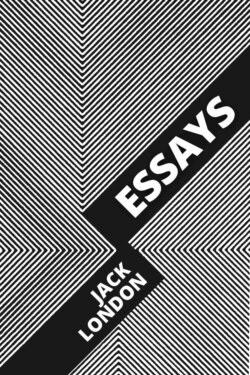Essays

Реклама. ООО «ЛитРес», ИНН: 7719571260.
Оглавление
August Nemo. Essays
Introduction
The Author
Revolution
The Somnambulists
Those On The Edge
Suicide
The Children
The Dignity of Dollars
These Bones Shall Rise Again
The Other Animals
What Life Means to Me
Notas
About the Publisher
Отрывок из книги
by Edmund Gosse1
As a form of literature, the essay is a composition of moderate length, usually in prose, which deals in an easy, cursory way with the external conditions of a subject, and, in strictness, with that subject, only as it affects the writer. Dr Johnson, himself an eminent essayist, defines an essay as “an irregular, undigested piece”; the irregularity may perhaps be admitted, but want of thought, that is to say lack of proper mental digestion, is certainly not characteristic of a fine example. It should, on the contrary, always be the brief and light result of experience and profound meditation, while “undigested” is the last epithet to be applied to the essays of Montaigne, Addison or Lamb. Bacon said that the Epistles of Seneca were “essays,” but this can hardly be allowed. Bacon himself goes on to admit that “the word is late, though the thing is ancient.” The word, in fact, was invented for this species of writing by Montaigne, who merely meant that these were experiments in a new kind of literature. This original meaning, namely that these pieces were attempts or endeavours, feeling their way towards the expression of what would need a far wider space to exhaust, was lost in England in the course of the eighteenth century. This is seen by the various attempts made in the nineteenth century to coin a word which should express a still smaller work, as distinctive in comparison with the essay as the essay is by the side of the monograph; none of these linguistic experiments, such as essayette, essaykin (Thackeray) and essaylet (Helps) have taken hold of the language. As a matter of fact, the journalistic word article covers the lesser form of essay, although not exhaustively, since the essays in the monthly and quarterly reviews, which are fully as extended as an essay should ever be, are frequently termed “articles,” while many “articles” in newspapers, dictionaries and encyclopaedias are in no sense essays. It may be said that the idea of a detached work is combined with the word “essay,” which should be neither a section of a disquisition nor a chapter in a book which aims at the systematic development of a story. Locke’s Essay on the Human Understanding is not an essay at all, or cluster of essays, in this technical sense, but refers to the experimental and tentative nature of the inquiry which the philosopher was undertaking. Of the curious use of the word so repeatedly made by Pope mention will be made below.
.....
The essay, although invented by a great French writer, was very late in making itself at home in France. The so-called Essais of Leibnitz, Nicole, Yves Marie André and so many others were really treatises. Voltaire’s famous Essai sur les mœurs des nations is an elaborate historical disquisition in nearly two hundred chapters. Later, the voluminous essays of Joseph de Maistre and of Lamennais were not essays at all in the literary sense. On the other hand, the admirable Causeries du lundi of Sainte-Beuve (1804–1869) are literary essays in the fulness of the term, and have been the forerunners of a great army of brilliant essay-writing in France. Among those who have specially distinguished themselves as French essayists may be mentioned Théophile Gautier, Paul de Saint-Victor, Anatole France, Jules Lemaître, Ferdinand Brunetière and Émile Faguet. All these are literary critics, and it is in the form of the analysis of manifestations of intellectual energy that the essay has been most successfully illustrated in France. All the countries of Europe, since the middle of the 19th century, have adopted this form of writing; such monographs or reviews, however, are not perfectly identical with the essay as it was conceived by Addison and Lamb. This last, it may be supposed, is a definitely English thing, and this view is confirmed by the fact that in several European languages the word “essayist” has been adopted without modification.
In the above remarks it has been taken for granted that the essay is always in prose. Pope, however, conceived an essay in heroic verse. Of this his Essay on Criticism (1711) and his Essay on Man (1732–1734) are not good examples, for they are really treatises. The so-called Moral Essays (1720–1735), on the contrary, might have been contributed, if in prose, either to the Spectator or the Guardian. The idea of pure essays, in verse, however, did not take any root in English literature.
.....